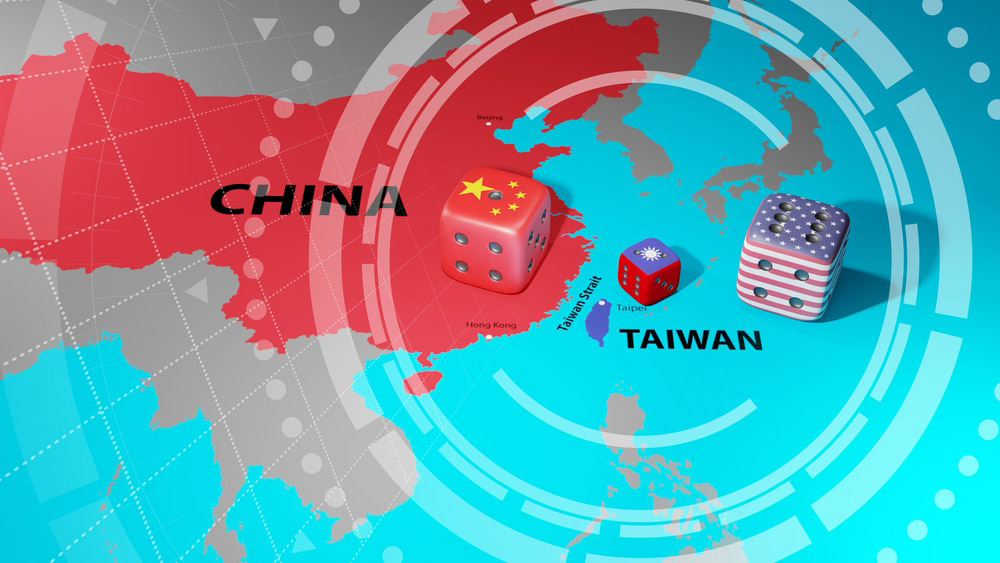Are you concerned that the situation in Taiwan could escalate into a conflict scenario?
Although neither side desires conflict, the prospect of inadvertent escalation is real. Beijing has not publicly and consistently articulated its red lines with respect to Taiwan, nor has it specified the consequences for crossing them. That ambiguity makes it difficult to ascertain what U.S. actions concerning Taiwan could elicit a Chinese military response. This increases the risk that a miscalculation or misjudgment on either side could touch off a wider military conflict.
Tensions are likely to remain high for some time, which complicates matters further. Xi Jinping cannot afford to look weak on Taiwan in the run-up to the Communist Party of China’s (CPC’s) 20th Party Congress this fall, in which Xi is seeking to break precedent and secure a third five-year term as CPC General Secretary. Additionally, Beijing perceives Washington to have embarked on a concerted effort over the last few years to push the envelope in testing Beijing’s tolerance for closer U.S. relations with Taiwan — Beijing describes this as the “hollowing out” of its One China principle. With PRC public messaging proving ineffective at deterring the U.S. from continuing to take steps to deepen its relations with Taiwan, Beijing is increasingly seeking alternative ways to do so, including the stepped-up military posturing around the island, which in turn elevates the risk of inadvertent escalation.
At the same time, the bellicosity of Beijing’s public rhetoric about Taiwan coupled with the increasingly aggressive Chinese military posturing around the island only increases the pressure on Washington not to back down. The domestic political ramifications in the U.S. of appearing to accommodate Beijing would be severe and the fall of Taiwan to the PRC would shatter the credibility of U.S. security commitments in the region. Consequently, the U.S. will likely continue to provide security assistance to Taiwan, demonstrate its ability to transit the Taiwan Strait and work with regional allies to elevate Taiwan‘s international profile while stopping short of emboldening Taipei to advance its independence aspirations for fear of touching off a larger conflict with Beijing. Such a delicate balancing act is difficult to sustain and is rife with the potential for misjudgment that could produce the very conflict that all sides are keen to avoid.
What should we be looking for as signs of further escalation between the U.S. and China?
We would look at the potential for escalation across a number of domains. For example, Beijing has long sought to woo Taiwan into its embrace through closer commercial and cultural exchanges. The PRC is Taiwan’s largest trading partner, so Beijing certainly has leverage to hurt Taipei economically, should it wish to do so. Although Beijing did move to restrict some forms of trade with Taiwan after Speaker Pelosi’s visit, Beijing has neither enacted the forms of trade restrictions that could really damage Taiwan’s economy nor moved to suspend air travel between Taiwan and the mainland. Should Beijing pivot away from using positive inducements in favor of a more coercive approach, this would be cause for concern.
Another sign would be the large-scale mobilization of civilian industries in China that would likely be ordered in anticipation of a military conflict over Taiwan, regardless of how such a conflict unfolded. China’s principal authoritative media outlets would also need to do more work to prepare the Chinese public for the hardships associated with prolonged military conflict. So far, this has not occurred.
Finally, it is worth noting that although the recent operations of the Chinese People’s Liberation Army (PLA) in the vicinity of Taiwan were unprecedented in many ways, there are still military actions that Beijing has yet to undertake with respect to Taiwan. These include military overflights of Taiwan and operating within the 12-nautical-mile territorial sea surrounding the island. Either would be objectively viewed as highly escalatory.
What does this standoff mean for the U.S.-China relations going forward?
In the near term, the current tensions do not bode well for the bilateral relationship. Just days after Speaker Pelosi departed Taiwan, for instance, the Chinese Foreign Ministry announced that Beijing would suspend cooperation with Washington on eight key areas of mutual concern, three of which pertain to the military domain. Although short of an outright suspension of military relations, the cancellation of these initiatives does not augur well in terms of the two sides’ ability to manage tensions around Taiwan and elsewhere in the region.
In the long term, it is still unclear how cross-strait relations will evolve as a result of Beijing’s response to Speaker Pelosi’s trip. PRC officials’ public statements and China’s principal authoritative media outlets have characterized the visit as a serious breach of Washington’s commitments to Beijing with respect to Taiwan and tantamount to a unilateral change to the status quo. Indeed, these talking points were used to justify the PLA operations in the vicinity of the island after the speaker’s departure. If, in fact, Beijing believes the longstanding status quo has been shattered, and it is seeking to re-establish a new status quo in response, it is unclear just what that new normal will look like, but it may well involve the routinization of more dangerous military posturing. Should that be the case, the risk of inadvertent escalation will grow accordingly.

